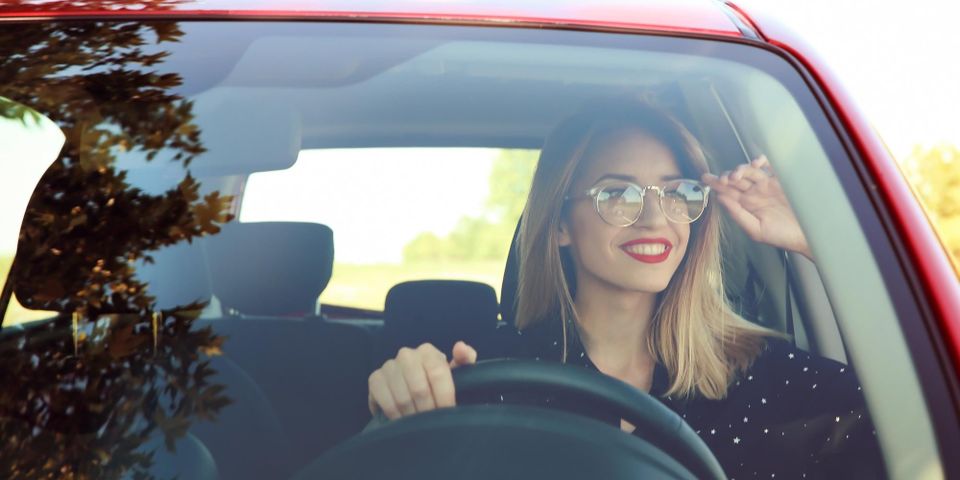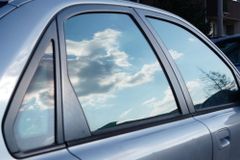3 Facts About Auto Window Tinting & UV Protection

When it comes to harmful ultraviolet (UV) rays, many people assume the most exposure comes from being out in direct sunlight. If you’re on the road for hours on end, your sun-related problems won’t be limited to heat and glare, as they’ll also include sunburn and skin damage. While there are some built-in precautions and auto window tinting options that offer protection, it’s important to know these products aren’t made equally. To keep yourself safe from harmful UV rays, here’s what you need to know.
What to Know About UV Protective Auto Window Tinting
1. Protection is Primarily in the Windshield
In most vehicles, UV protection is limited to the windshield due to its thick construction. Windshields have three layers, with two layers of glass on the outside and a plastic-based laminated glass in the middle. Not only does this interior layer help cushion the impact and prevent the glass from shattering, but it can also block out UV rays. The other windows, however, are only made of tempered glass, so UV light can still easily reach your skin.
2. Level of Protection Varies By Manufacturer
 Although the windshield is usually the most commonly protected glass, a few manufacturers have started offering additional UV protection on the side and rear windows, as well as the sunroof. Some, such as Hyundai® and Kia®, use special SPF-treated glass to achieve this, while others, like Toyota®, have switched to using laminated glass on the front windows of certain models. However, there are no regulations on this, so if you’re curious whether your preferred manufacturer offers it, you’ll need to check the individual vehicle specifications.
Although the windshield is usually the most commonly protected glass, a few manufacturers have started offering additional UV protection on the side and rear windows, as well as the sunroof. Some, such as Hyundai® and Kia®, use special SPF-treated glass to achieve this, while others, like Toyota®, have switched to using laminated glass on the front windows of certain models. However, there are no regulations on this, so if you’re curious whether your preferred manufacturer offers it, you’ll need to check the individual vehicle specifications.
3. Aftermarket Window Tinting Has Coverage
If you need coverage on the other windows, or you want to raise the level of protection, aftermarket window tinting is the best option. Similar to sunglasses, these darkened panels help block out the sun.
However, what’s available will depend on your location, as different states have different laws regarding tinting levels and their placements. For example, in Illinois, if you want to have all your windows tinted, you must have clear factory glass, and the Visible Light Transmittance (VLT) percentage cannot go below 35%. The lower the number, the less sunlight can pierce through.
When you want to protect yourself from sun overexposure, make an appointment with Bi-State Glass Coatings. Based in Granite City, IL, this family-owned and -operated company has served residents and businesses throughout the Greater St. Louis area for more than 30 years. They offer a variety of auto window tinting options, many of which provide significant UV protection, and also have residential window tinting products from the top name brands, like Sunscape! You can read about everything they offer on their website, or call them at (618) 451-7346 for additional questions.

About the Business
Have a question? Ask the experts!
Send your question

